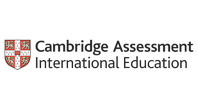
Why is the Business subject important in the A Level curriculum?
As a broad subject in the social sciences, the Business subject opens the study field to a focus of specialties such as operation management, accountancy & finance management, organisational management, human resources management and marketing.
While studying Business and Economics, students enhance their communication skills, they improve their writing skills, they get confidence while giving presentations during the lessons. Students gain ideas about entrepreneurship, they learn how the entrepreneurs make the decision on what is to produce, how it is produced, how to find the resources to fund the business.
What skills and abilities do the students who choose this subject develop?
A Level students taking Business are most likely to develop these skills and abilities: analytical and critical thinking, problem solving skills, an understanding of how organisations operate, logical thinking skills, presentation and report writing skills. Last, but not least, during Business classes students develop interpersonal and intrapersonal communication skills (oral and written).
What teaching methods do you apply in your classes?
As a teacher of business, I use a variety of approaches and strategies to support student learning, involving both theory and application. For example, lecture and active discussion, which are probably the most common teaching methods found in business schools. Often, in our classes students themselves summarise, question, clarify and respond to what they are reading. Another method is project-based learning – a dynamic classroom approach in which students actively explore real-world problems and challenges of any business/firm and acquire a deeper knowledge. I involve students to pitch ideas and create their own business plans to solve societal and business needs. Students work independently or in a group to conceptualise, design and launch their innovative product in front of classmates and community leaders.
How do you keep your students engaged and interested in your subject?
I believe in the thought of giving respect and earning respect. Because when students feel that a teacher respects and cares about their feelings and opinions, they are more likely to retain a sense of belonging and value in the classroom. Keeping control of the classroom is about creating an environment focused on cooperation, respect and prosperity for everyone involved. I focus on deepening student learning, knowledge and mastery rather than just taking tests and meeting standards. By implementing this, everything about school and education is improved. When a student feels involved and connected to their peers and works in the classroom, they are more likely to retain what they have learned and develop a lifelong love of learning.
Do A Level students get homeworks?
In addition to class contact time, Lyceum students should expect to undertake study outside the classroom of about 4-6 hours per subject per week in the A Level program. Some of this out-of-class study will be the completion of specific tasks set by the teacher: note-taking, extension tasks, wider reading, revision and other academic organisation are essential for the both subjects of Economics and Business.
How do you grade the A Level students and what exams do they take?
For grading in A Level we follow the Cambridge grading system which is percentage uniform marks.
As you probably know, Heritage Lyceum students do not take the national Baccalaureate exams at graduation. As a Cambridge School (and the only one in Moldova), for the assessments, we follow the patterns of exam papers as per the guidance of the Cambridge Assessment International Education (CAIE). To pass successfully an exam at A Level, pupils should be able to answer concisely to the indicated questions. Questions range from multiple choice and calculations through data response to full essays in all boards and students are expected to make judgements based on context and own analysis. All the students sit for the above examinations every year in the months of May/June. After successfully taking the exams, Heritage students will get the Cambridge International A Level qualifications, recognised worldwide.








